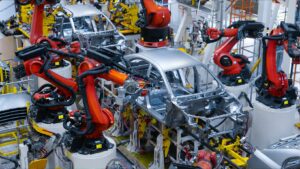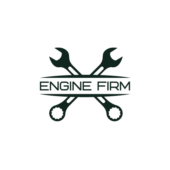Automotive Industry Software
Automotive industry software encompasses a wide range of applications, including CAD/CAM systems for design, ERP solutions for streamlined operations, and CRM platforms for enhancing customer relationships. As the demand for smarter, more connected vehicles grows, so does the need for advanced software solutions that can keep up with the evolving landscape of the automotive market. Stay tuned to explore how automotive industry software is reshaping the future of mobility.
The automotive industry is continuously evolving, driven by technological advancements and changing consumer demands. Understanding the latest trends in automotive industry software is crucial for staying competitive and meeting customer expectations.
Automotive industry software is witnessing a rapid integration of emerging technologies such as artificial intelligence (AI), machine learning, and Internet of Things (IoT). These technologies are revolutionizing vehicle design, manufacturing processes, and the overall driving experience. For instance, AI-powered software enables predictive maintenance, autonomous driving features, and personalized user experiences, enhancing both vehicle performance and customer satisfaction.
The rise of electric vehicles (EVs) is reshaping the automotive industry, leading to increased focus on software solutions tailored for EV infrastructure and operations. Software plays a vital role in managing EV charging stations, battery performance optimization, range prediction, and energy efficiency. Seamless integration of software in electric vehicles not only enhances their functionality but also contributes to sustainability efforts by reducing carbon emissions.
Key Software Solutions Redefining the Automotive Sector
Enabling engineers to create and analyze virtual prototypes, design and simulation software revolutionizes the automotive industry by streamlining product development processes. It accelerates innovation, reduces time to market, and enhances product quality by allowing for detailed testing and optimization before physical prototyping.  Leading solutions like Siemens NX and Autodesk Alias Automotive empower automotive designers to visualize and refine vehicle aesthetics, aerodynamics, and performance in a digital environment.
Leading solutions like Siemens NX and Autodesk Alias Automotive empower automotive designers to visualize and refine vehicle aesthetics, aerodynamics, and performance in a digital environment.
Critical for optimizing production efficiency and quality control, manufacturing execution systems (MES) integrate production planning, operations management, and data analysis in automotive manufacturing. MES software such as Rockwell Software and SAP Manufacturing Execution ensures seamless coordination between machines, processes, and personnel on the shop floor. By providing real-time insights, monitoring production metrics, and enabling data-driven decision-making, MES enhances workflow visibility, resource utilization, and overall operational performance in automotive production plants.
Challenges Facing Automotive Software Deployment
When it comes to automotive software deployment, there are several challenges that industry players need to navigate to ensure smooth and efficient operations. Two significant hurdles that often arise in this space are cybersecurity issues and the high cost of implementation.
Ensuring the security of automotive software systems is paramount in today’s digital age. With the increasing connectivity of vehicles through IoT technology and the reliance on software for critical functions, the risk of cyber attacks has grown significantly. Automotive companies must invest in robust cybersecurity measures to safeguard sensitive data, prevent unauthorized access to vehicle systems, and protect against potential threats that could compromise safety and privacy.
One of the major obstacles to the widespread adoption of automotive software solutions is the high cost associated with implementation. Developing and deploying advanced software technologies tailored to meet the complex needs of the automotive industry requires substantial financial investment. From acquiring the necessary software licenses to integrating new systems with existing infrastructure, the financial burden of implementing cutting-edge software can be a deterrent for some companies. Balancing the cost of software deployment with the potential long-term benefits and efficiencies it offers is a critical consideration for decision-makers in the automotive sector.
Automotive industry software plays a pivotal role in shaping the future of vehicle design, manufacturing, and customer experience. The integration of advanced solutions like AI, machine learning, and IoT is revolutionizing the industry by enhancing efficiency and sustainability. Despite challenges in deployment, such as cybersecurity and costs, embracing these technologies is essential for staying competitive. The future holds promising advancements with increased adoption of AI algorithms, machine learning, and big data analytics for improved performance, production optimization, and data-driven decision-making. Embracing innovation in software solutions is key to driving progress and maintaining a competitive edge in the dynamic automotive sector.

